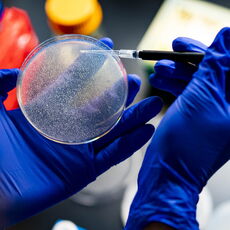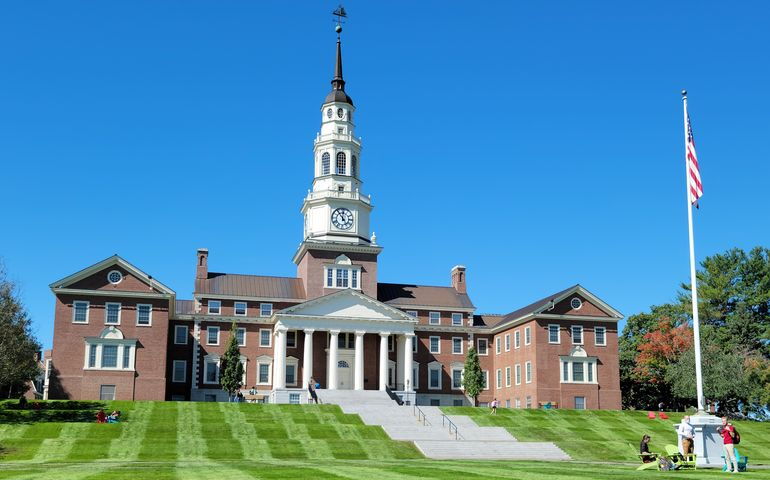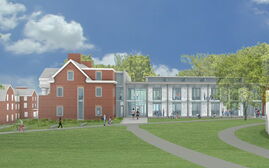
Colby College gets record $150M gift to build science complex
 File Photo
Colby College received an anonymous $150 million donation to build a science complex on its campus in Waterville.
File Photo
Colby College received an anonymous $150 million donation to build a science complex on its campus in Waterville.
Colby College said it has received a $150 million anonymous gift to build a 200,000-square-foot science complex on the school's campus in Waterville by 2030. The donation is the largest in the school's history.
The planned center is part of a $500 million investment in science and technology that includes the creation of new engineering and public health programs targeting health and environmental issues. They’ll also help the college build on collaborations with science research organizations and support K-12 STEM education.
“The lines between fundamental and applied research have been blurred in recent years, with science-driven technologies changing the very nature of health care, environmental stewardship and business growth,” said Colby College President David Greene, who was honored as a Mainebiz Business Leader of the Year in 2017.
"For many scientists today, their work is most productive and their progress most robust when it involves a collaborative approach to joining basic and applied research," Greene added.
Science building

The core of the overall investment is the development of a $300 million science complex, at 4000 Mayflower Hill in Waterville, and the expansion of the science curriculum to include more applied science and engineering. Plans for the facility include teaching and research laboratories, classrooms, offices, fabrication labs, computing infrastructure and gathering spaces.
An architect and general contractor have not yet been selected, according to a spokesperson for the school.
The college has explored conceptual models for organizing the space to blur disciplinary boundaries, encourage collaboration and integrate research and teaching. That includes creating shared areas with specialized equipment and instrumentation such as imaging technology and computation resources, with a goal to bring researchers into spaces shared between disciplines.
Colby will also expand its science faculty and introduce a suite of engineering and applied science programs, likely to include biomedical engineering, environmental engineering, materials engineering and public health.
Building science
The complex builds on previous science initiatives. That includes Colby’s recent announcement that it would establish a Center for Resilience and Economic Impact, aiming to employ scientific approaches to strengthen communities; and that it was partnering with the Central Maine Growth Council to develop a computing hub in Waterville.














0 Comments